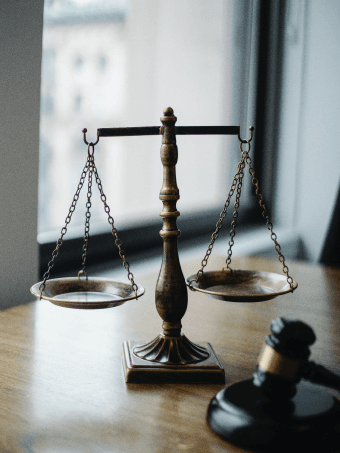What is a trademark?
A trademark is a word, phrase, symbol, design—or a combination of these—that identifies and distinguishes the source of goods or services of one party from those of others. It’s essentially your brand’s identity in the marketplace.
Trademarks protect elements like:
Your business name
A logo or icon
A slogan
Product or service names
Trademarks help consumers recognize and trust your brand, building loyalty and distinguishing you from competitors. While trademark rights are established through use in commerce, registering your trademark with the United States Patent and Trademark Office (USPTO), or your local IP office, provides stronger legal protection and nationwide recognition.
What is a copyright?
A copyright protects original works of authorship that are fixed in a tangible medium of expression. This includes things like:
Literary works (books, articles)
Artistic works (paintings, drawings)
Music and lyrics
Films and videos
Software code
Website content
Photographs
Unlike trademarks, which protect branding elements, copyrights protect the expression of ideas, not the ideas themselves. As soon as your creative work is documented—written down, recorded, or saved—it’s automatically protected under copyright law. However, registering your work with the U.S. Copyright Office (or a similar office in your country) gives you additional legal benefits, including the ability to sue for infringement and claim statutory damages.

Which one do you need? 2 common scenarios
1. You’re launching a business
If your primary concern is protecting your business identity—your name, logo, tagline, or product branding—you need a trademark. This is especially important if you’re entering a competitive market and want to prevent others from using similar branding that could confuse customers.
A registered trademark gives you:
Exclusive rights to your brand name
Legal tools to enforce your rights
A competitive edge in your industry
Registering your trademark early can help you avoid expensive rebranding and protect your reputation as you grow
2. You’re creating original content
If you’re a writer, artist, photographer, designer, or musician you need copyright protection. Copyright ensures that your creative works can't be reproduced, distributed, or publicly performed without your permission.
This applies to:
Marketing materials
Music tracks or podcasts
Blog posts and written content
Visual artwork
Whether you’re publishing online or producing content for clients, copyright gives you control over how your work is used and the ability to take legal action if someone copies it without your permission.
Can you have both?
Yes—and in many cases, you should.
For example, if you're a content creator with a branded YouTube channel:
Your channel name and logo may be protected under trademark law
Your videos, scripts, thumbnails, and music are protected under copyright law
Or if you're a business:
Your brand identity (name, slogan, packaging) can be trademarked
Your website design, written content, and marketing visuals may be eligible for copyright protection
Combining both types of protection ensures your business and creative work are fully safeguarded across multiple dimensions.
Still unsure which protection fits your needs? At Trama, our legal experts can help you evaluate your options and guide you through the trademark process with confidence—starting with a free lawyer’s check of your trademark application.


